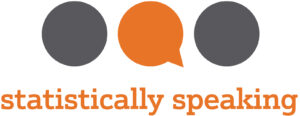Regression models, such as linear, logistic, time to event, and mixed models, measure the strength of the association between the dependent variable and the independent variables.
(more…)
Stage 3
Member Training: A Guide to Models for Causal Inference
Member Training: Principal Component Analysis
When you’re working with many correlated variables, they get too unwieldy to use individually.
(more…)
Member Training: Marginal Models for Repeated Measures Data
Repeated measures ANOVA doesn’t cut it for many repeated measures situations, but do you always need mixed models instead?
Member Event: Count Models Accelerator
You’ll be excited to hear we’re doing another Statistics Skills Accelerator for our Statistically Speaking members: Count Models.
Stats Skills Accelerators are structured events focused on an important topic. They feature Stat’s Amore Trainings in a suggested order, as well as ![]() live Q&As specific to the Accelerator.
live Q&As specific to the Accelerator.
In August, our mentors will be running a new Accelerator. The first Q&A is August 6, 2025 at 3 pm ET, hosted by Jeff Meyer.
Count models are used when the outcome variable in a model or group comparison is a discrete count:
- Number of eggs in a clutch
- Number of days in intensive care
- Number of aggressive incidents in detention
- Poisson Regression is the simplest and is the basis for all the other models, but its assumptions are rarely met with real data.
- Negative Binomial regression adds an extra parameter to a Poisson regression measure the extra variance that often occurs in real data.
- Truncated count models work when the lowest values (often just zero) cannot occur. This happens when a count has to occur in order to be part of the population of interest.
- Zero inflated count models are used when there are more zeros than expected. For this model, some zeros could have been something else and others couldn’t.
- Hurdle models also work when there are more zeros than expected, but the process of having a zero is different. In these models, there is an actual “hurdle” one has to pass in order to have a non-zero count.
- Logistic regression, when your count is out of of maximum number.
Note: This training is an exclusive benefit to members of the Statistically Speaking Membership Program and is a combination of watching recorded trainings and live events.
Member Training: Cubic Splines
Splines provide a useful way to model relationships that are more complex than a simple linear function. They work with a variety of regression models.


